Bhudo Advani
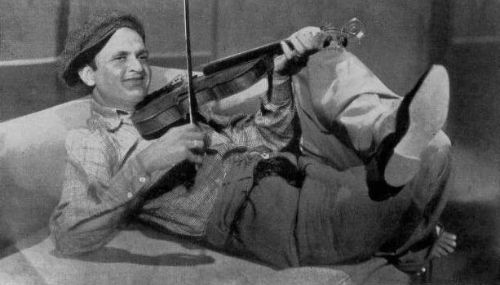
Subscribe to read full article
This section is for paid subscribers only. Our subscription is only $37/- for one full year.
You get unlimited access to all paid section and features on the website with this subscription.
Not ready for a full subscription?
You can access this article for $2 , and have it saved to your account for one year.
- Real Name: Daulatram Advani
- Born: 17 August 1905 (Hyderabad, Sindh)
- Died: 25 July 1985 (Mumbai)
- Primary Cinema: Hindi
Bhudo Advani, the toothless comic of the Indian screen, was born in Hyderabad, in the Sindh province. Born on 17 August 1905, he was named Daulatram Advani at birth. Inclined towards the art of acting even as a child, Advani was an amateur stage artist in Karachi for some time. He was known for playing female roles on stage. While portraying Laila’s mother in a play titled Mr Majnu, Bhavnani spotted him and invited him to Bombay. While in Bombay, Advani had a stroke of luck. The director Mehboob used Central Studios for his shoots before he got his own studio in 1942. The room allotted to his artists for their makeup was on the same floor where Advani lived, and so Advani became acquainted with a number of leading actors and actresses of the time.
Advani made his screen debut with Ajanta Cinetone’s Noor-e-Haram/ Afzal, made by M. Bhavnani. Subsequently, Bhavnani also offered him a role in Mill/ Mazdoor (1934), one of the only engagements between cinema and the celebrated Urdu and Hindi author Premchand. The film featured Bhudo Advani in one of his most significant roles as a comedian. Also starring Jairaj and Bibbo, Mill/ Mazdoor picturized the raging conflict between the classes. Unsurprisingly, the film was pulled out of theatres, and eventually, Ajanta Cinetone was forced to close its doors forever as well. Before this, however, Bhudo had already worked in several films starring Nisar and Bibbo under the Ajanta Cinetone banner.
Bhudo then joined Sagar Movietone. Discovering he had a gift for comedy, he stuck to comic roles. This move to Sagar Movietone proved to be fortuitous since the production house was slowly gearing up to make comedies at the time. With films likeSarvottam Badami’s Dr. Madhurika (1935), Chimanlal Luhar’s Do Diwane (1936) and Mehboob’s Deccan Queen (1936), Bhudo turned to comic roles in entirety. His looks distinguished him from other comics of his era. Usually seen onscreen as toothless, he had very scanty hair and hawk-like eyes. In addition, his diction was peculiar and served to separate his approach to comedy from other popular comedians.
Bhudo soon became an important part of Mehboob’s team and was seen in a number of his films including Manmohan (1936), Jagirdar (1937), Hum Tum Aur Woh (1938), Bahan (1941), Anmol Ghadi (1946) and Anokhi Ada (1948). From 1933 to 1940 he worked in 35 films including Sair-e-Paristan (1934), Dard-e-Dil (1935), Gramophone Singer (1938) directed by V.C. Desai and Ramchandra Thakur, Abhilasha (1938) directed by Mahendra Thakore and Zia Sarhadi, Ladies Only (1939) directed by Sarvottam Badami, Sadhana (1939), Seva Samaj (1939), Kumkum the Dancer (1940) directed by Madhu Bose, Poojaa(1940) directed by A.R. Kardar and Civil Marriage (1940).
In 1939, Bhudo was married. He had seven children, two sons and five daughters. Unfortunately, one of his sons died early. His flat in Tardeo, Mumbai in the Central Studios was said to be so large that it accommodated over a hundred people when he celebrated his daughter’s wedding reception. A man of strict principles, Advani always made sure to keep his children away from the glitz and glamour of the film world. However, in two of his Sindhi-language film, his spouse appeared onscreen as his wife. Advani was such a humble man that he was known to all as “Bhudo”, which derived either from the word budhhu (simple), or buddho, meaning an old man, a reference to his lack of teeth. He eventually adopted it as his screen name and was credited as Bhudo Advani in most of his works.
In the 1940s, Bhudo Advani featured in a number of significant Hindi films. These included Darshan (1941), Fashion (1943), Pehli Nazar (1945), Nala Damayanti (1945), Bisvi Sadi (1945), Yateem (1945), Meri Kahani (1948) and Duniya (1949). He also staged a full-length Sindhi-language play titled Under Secretary in Bombay after the Partition. Over the next decade, Bhudo Advani appeared in around 20 films, including Bewafa (1952), Munna (1954), Meena Bazaar (1950), Boot Polish (1954) and Shree 420 (1955). The last included one of Bhudo Advani’s most popular performances as a compulsive gambler. He also played important roles in films like Jagte Raho (1956), Ab Dilli Dur Nahin (1957), Aakhri Dao (1958) and Madhumati (1958). In 1958, Bhudo Advani also featured in the first Sindhi-language film Abana alongside Sheila Ramani and Sadhana.
After maintaining his position in the film world for over two and a half decades, he started freelancing but his luck, unlike his contemporaries Charlie and Dixit, did not serve him well. His appearances on screen over the 1960s-70s were few and far between, with some roles in films like Hrishikesh Mukherjee’s Anuradha (1960), Maya Jaal (1962), Bachpan (1963), Saheli (1965), Chhoti Chhoti Baten (1965) (also Motilal’s last film), and a small but notable performance in the acclaimed Khamoshi (1970). Gradually, he went out of vogue. Since he had a large family, he did not have a significant amount of savings to sustain him either. He appeared onscreen for the last time in a cameo for Satyajit Ray’s masterpiece Shatranj Ke Khilari (1977).
In 1978, Advani moved to Versova from his flat in Tardeo. He tried his hand at other jobs but found it difficult to shift professions at that age. Left with no choice, he started working in his brother’s Coronation Footwear chain of shops in Grant Road. The shoe business was not new to him. In one of his interviews, he had mentioned working in a footwear shop before he moved to Bombay to work in films. He believed it to be fate that he came back to this profession when he could find no other work. He worked at the shops for almost six years. He passed away on July 25, 1985. Through the course of his long career, Bhudo Advani acted in over hundred films, four Sindhi films and two Gujarati films.
In his entire career, Bhudo Advani acted in over 100 films, 4 Sindhi films and 2 Gujarati films. In two of his Sindhi films, his real-life wife acted as his screen wife.
-
Filmography (43)
SortRole
-
Shyamla 1979
-

Bachpan 1963
-
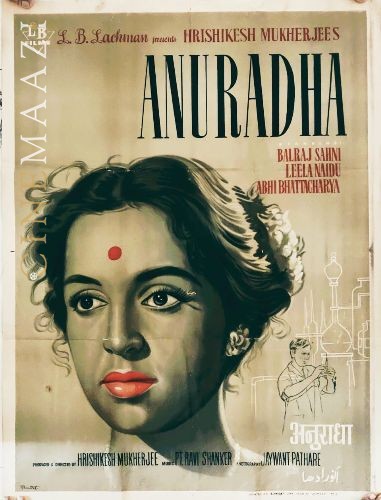
Anuradha 1960
-
Qaidi No.911 1959
-
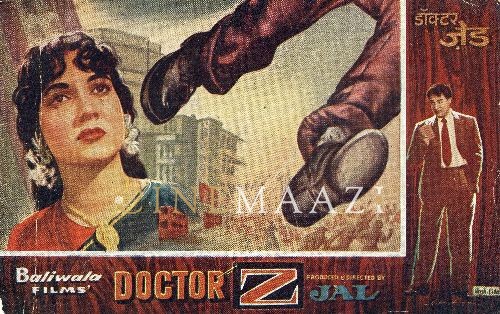
Doctor Z 1959
-

Jagir 1959
-
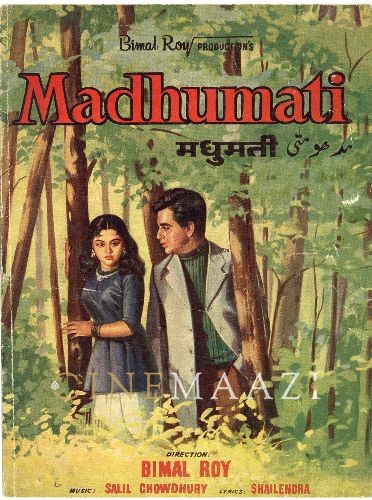
Madhumati 1958
-

Aakhri Dao 1958
-

Hathkadi 1958
-
Abana 1958
-
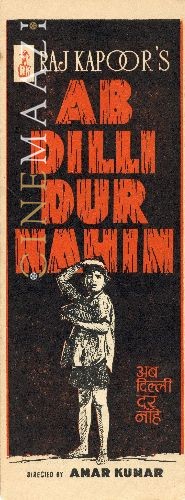
Ab Dilli Dur Nahin 1957
-

Jagte Raho 1956
-






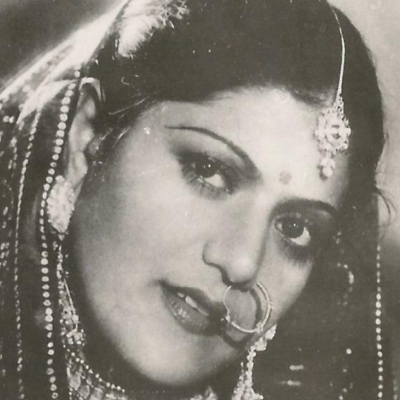


.jpg)



